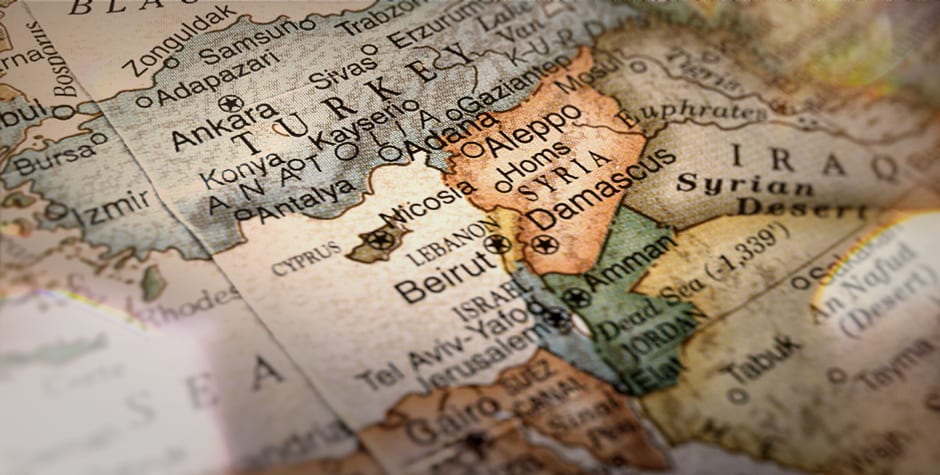The Path to Peace and Prosperity in the Middle East
Last week, I had the pleasure of speaking at the inaugural celebration of the King Hamad Peaceful Coexistence Award at the Simon Wiesenthal Center. This event reflected the great potential for securing lasting peace and prosperity in the Middle East, and I remain hopeful that despite the current Administration’s policies toward the region to date, the great work we began with the Abraham Accords – a historic set of peace and normalization agreements between Israel and her Arab neighbors – will only continue to grow.
Indeed, recent reports of a U.S.-Israel-Saudi deal and the President’s remarks on his recent Middle East trip suggest that Team Biden is finally moving in the right direction. I fear, though, that without the right foundation, these efforts will not lead to success. To expand and secure peace, the Biden Administration must embrace two simple facts: First, the biggest problem in the Middle East is not Israel – it is the murderous regime in Iran. And second, only by deterring Iran and supporting true religious tolerance across the Middle East can a lasting peace be won.
When I was Secretary of State, we knew that we could forge much stronger peace agreements by championing religious freedom, a fact that was borne out by the success of the Abraham Accords. This commitment led us to do more than any Administration in history to fight global antisemitism, such as when we cut federal funding for organizations participating in the Boycott, Divestment, and Sanctions (BDS) campaign. It is also why we forged new partnerships with leaders like King Hamad bin Isa Al Khalifa of Bahrain, who believe the future of the region must be defined by religious tolerance rather than division.
We also showed the world we were serious about standing with Israel. Whether it was recognition of the Golan Heights or moving our embassy to Jerusalem, we made it clear that the United States would not waver in our commitment to Israel. Tragically, the Biden Administration has so far done the opposite. It has indecently weighed in on Israel’s judicial reforms and inappropriately criticized Israel’s government, going so far as to blame it for Palestinian terror attacks. This is clearly the wrong approach – no matter what political party is represented in the White House, historic friends and allies should respect one another’s legitimate internal affairs. Instead, the Administration has routinely prioritized engagement with the Palestinians while punishing Israel in increasingly counterproductive ways. Just last month, it cut U.S. support for Israeli research institutions in the West Bank, a purely political move in alignment with the BDS movement that will only harm the U.S.-Israel relationship and benefit no one – including the Palestinians.
My colleagues in the prior Administration and I truly wanted the best for the Palestinians and Israelis alike. We offered the Palestinian people a deal that we felt would help them prosper alongside their Israeli neighbors. But unfortunately, massive funding and radical ideology from the regime in Tehran remain embedded in the West Bank and Gaza.
Indeed, a prosperous, peaceful future for the Palestinians and Israelis alike depends chiefly on facing down the regime in Tehran. Far from instigating conflict, our maximum pressure campaign on Iran opened up new pathways for peace between Israel and her Arab neighbors. Our decision to take out Qassem Soleimani – an Iranian terrorist responsible for killing Americans and who was close to the Mullahs in Tehran – did not result in war; it showed our partners and allies that America was serious about protecting its interests. They knew we would have their back against Iran, and this too was a key factor that led to the signing of the Abraham Accords.
This momentum we built has since slowed to a grinding halt, and it has been replaced by repeated efforts to reach a new nuclear deal. Predictably, the leaders in Tehran have not undertaken these negotiations in good faith and have tried instead to exploit the United States at every turn, just as they did during the original JCPOA negotiations in 2016. The Iranian regime clearly believes it can continue this successful history of manipulation, which would once more leave it flush with cash, put it on a rapid path to developing nuclear weapons, and enable it to increase funding for its terrorist proxies across the Middle East. The Biden Administration’s efforts to expand Middle East peace are laudable, but it cannot do so while it enriches the chief threat to that peace.
To build on the success of the Abraham Accords, we need to unequivocally stand with Israel, build partnerships by emphasizing religious freedom, and champion shared deterrence of the Iranian regime. If we do that, I am confident that the peace we achieved will grow.
